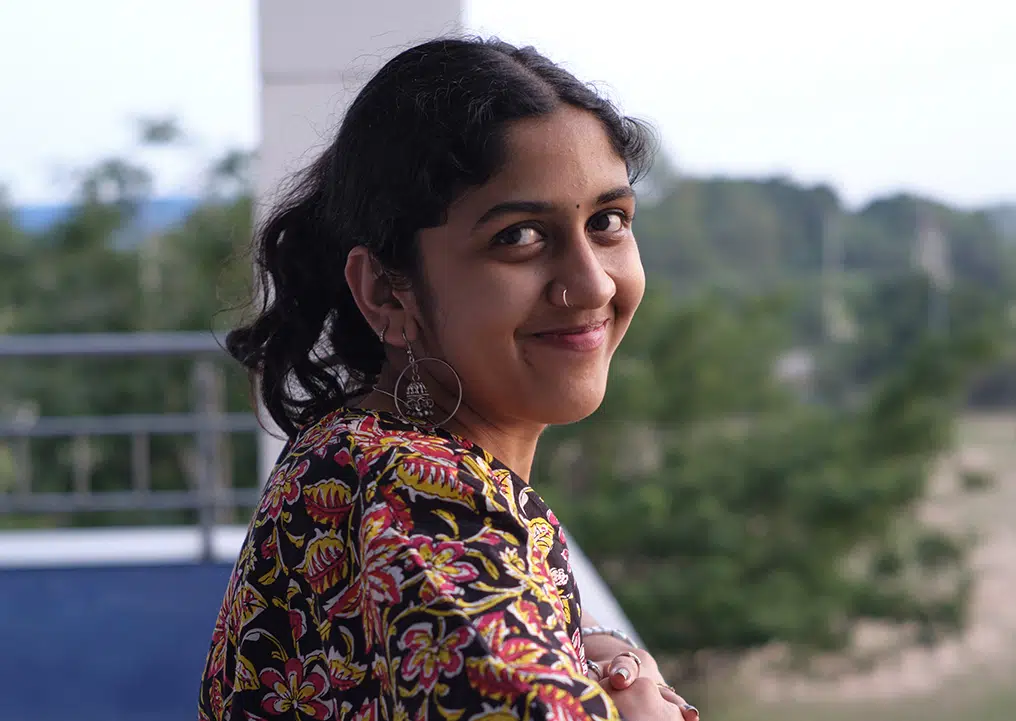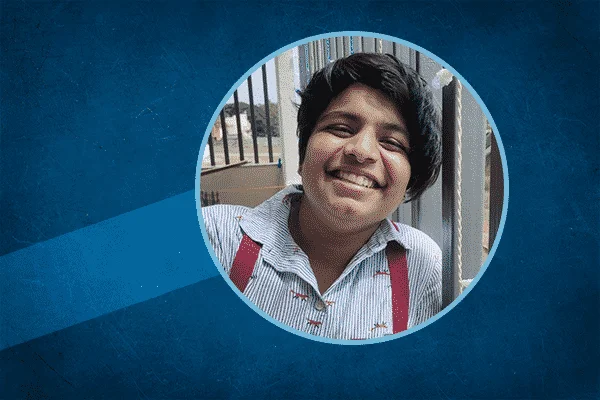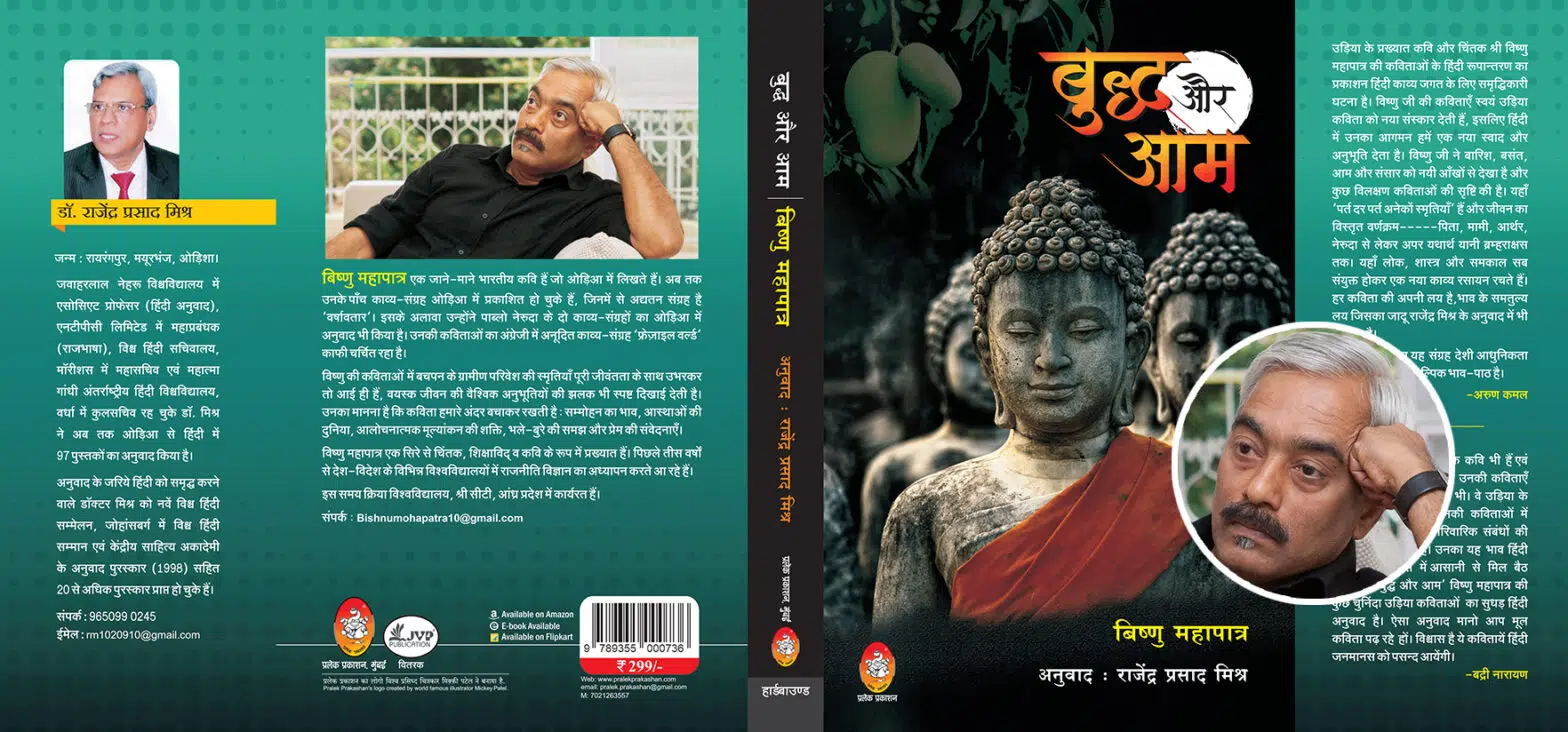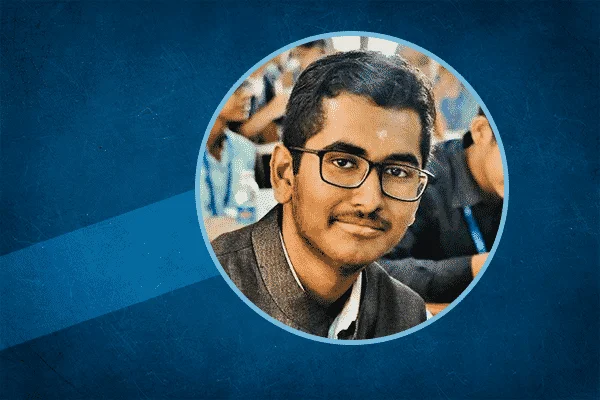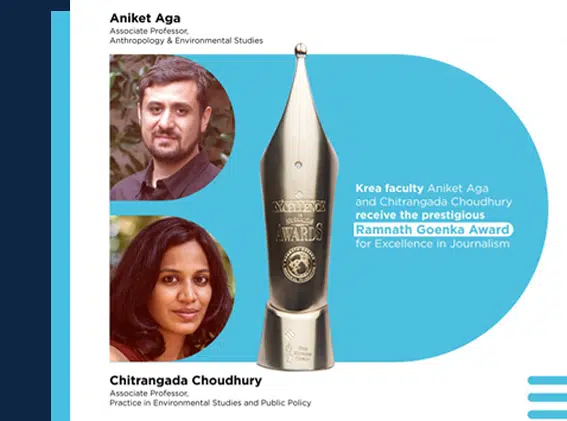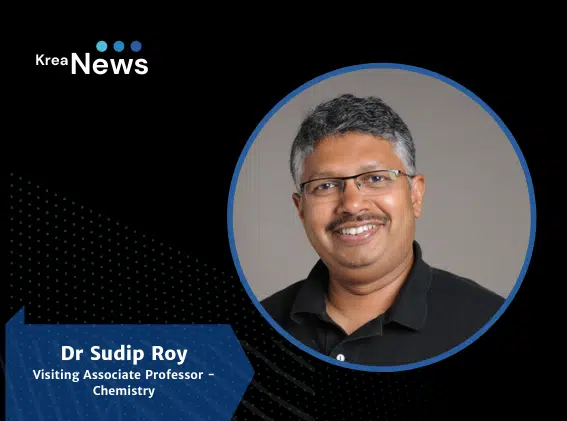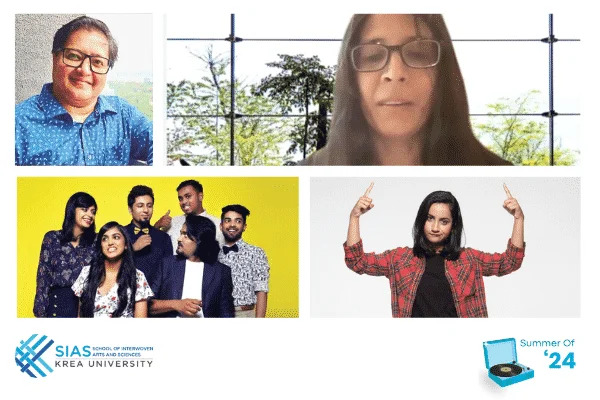Aishwarya Sivaramakrishnan, SIAS cohort of 2022 has secured an early action round acceptance to pursue a Master’s in Public Policy (MPP) from the Harris School of Public Policy in the University of Chicago, along with a Harris Merit scholarship. Driven by her passion for education, social impact and effective policy making, Aishwarya intends on putting policy into practice and working with the government or NGOs in the field of education.
Aishwarya reflects on her journey through Krea and the vision she holds for the future.
The Call to the Future
“The call was a shock in itself; it was unexpected and exhilarating.” The acceptance news took Aishwarya by surprise, it was like a bolt out of the blue but definitely one that held immense joy.
“The MPP programme at Harris School of Public Policy has always been my top choice due to the heavy focus on data analysis and the multidisciplinary approach towards tackling real-world issues, similar to my undergraduate experience at Krea University.”
Aishwarya has also secured a Harris Merit scholarship and believes her summer internship experiences and externships at Teach for India, Centre for Policy Research, Rhapsody Music, and Aureolis Ventures have helped her expand interests and skills and laid down the path for where she is today.
The Vision, Passion and Determination
In the past three years, Aishwarya has had the opportunity to volunteer and pursue her internship with various policy advocacy groups that lobby for grassroots-level change in state-sponsored educational institutions.
“Since then, education policy and child rights have become my passion project, and I have worked extensively in the education space in India. This has given me an insight into the ground realities of primary education facilities, opening my eyes to the pressing need for changes in both curricula and infrastructure available to school-going children, especially in semi-urban and rural areas. Some of my most cherished, valuable experiences and life lessons are from this period of working with children and individuals from all walks of life, and they have shaped the person I am today.”
On completion of her studies, Aishwarya intends on putting policy into practice and working with the government or NGOs in the field of education.
The Krea Journey
Aishwarya fondly remembers her journey at Krea with a memory from day one, something that continues to stick with her even today.
“It was the first day and I was in my room and so was my roommate and so were our families, the entire area was abuzz with hellos and greetings, people were coming in and stepping out and it all felt comforting and familiar. It just felt right and Krea truly felt like home. It remains one of my most heartening experiences till date.”
Aishwarya has always been passionate about education, teaching and training, thanks to her mother who is a teacher. Though she also remarks that before stepping into Krea, she wasn’t so sure on her path forward and there was a huge possibility that she would have headed into the family run business.
Aishwarya ran for the position of Finance and Resources Representative in the first year at Krea and was part of the first student government. It being the very first year of Krea University also helped her play an instrumental role in building the student government and pushed her to try new things, meet new people, and make the most of her newfound independence.
When asked for a piece of advice to other Masters’ aspirants, Aishwarya adds, “I applied to the Harris School of Public Policy in October close to the deadline. And though I didn’t really plan much and got admitted to the very first school I applied; planning does help. There are times when we may not feel too confident and second guess our choices, but the key is to believe in oneself.” Aishwarya does believe firmly in taking chances.
An Economics major, while she believes that she was passionate about her vision, Krea opened up her mind and the various experiences helped her pave the way forward. The Interwoven Learning aspect helped her figure out her other interests, and how she could pair them best with Economics.
When it all clicked
Her passion for impactful education was turned into a more determined drive in the first year and the internship, especially the one with Teach of India, was significant in the process. Over her UG years, Aishwarya has done various internships and online training stints which only helped her passion evolve further.
It was in the 2nd year and through a session hosted by the Career Services Office(CSO) for Harris School of Public Policy that helped Aishwarya zero in on her dream institution.
Interestingly, Harris School of Public Policy was her first and only college application and it all fell into place. “I applied during the Early Action round and this was helpful since I was able to get an early decision and plan ahead when it came to academics at Krea and moving to Chicago.”
While the undergraduate experience at SIAS, Krea University and the upcoming Masters at Harris School of Public Policy are pivotal milestones, they are only steps into the impactful journey that this young changemaker has embarked on.
